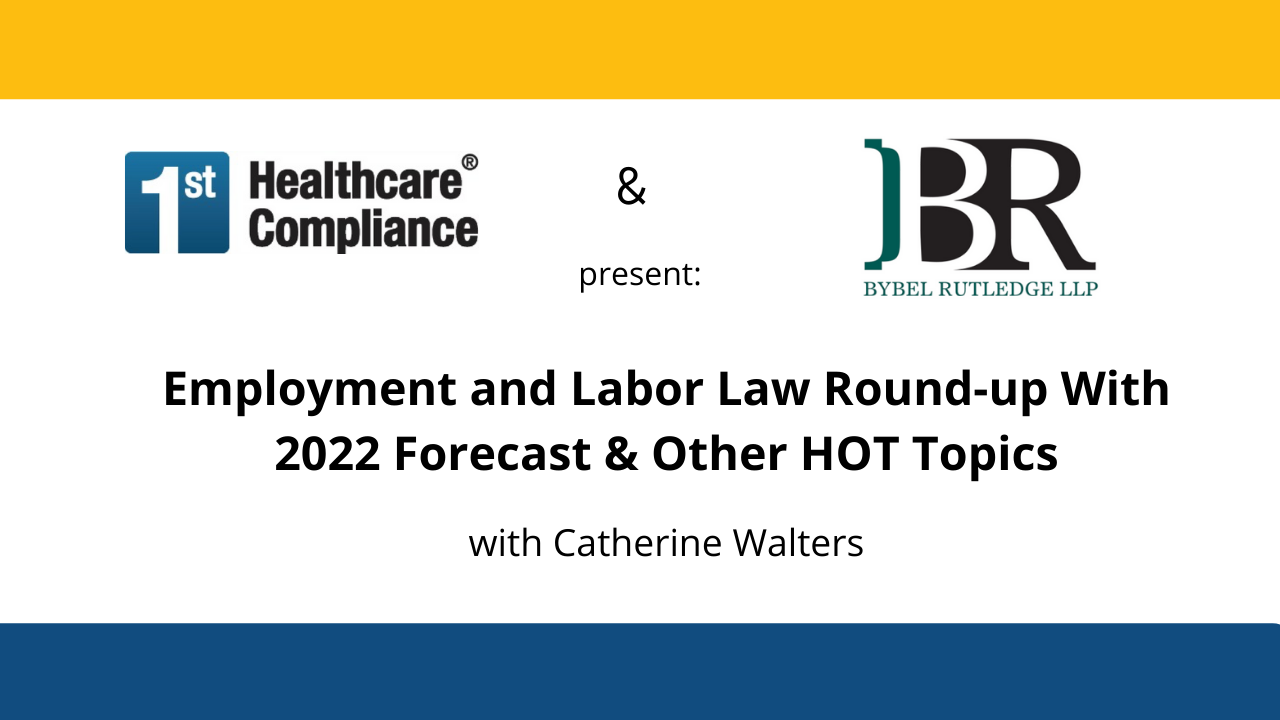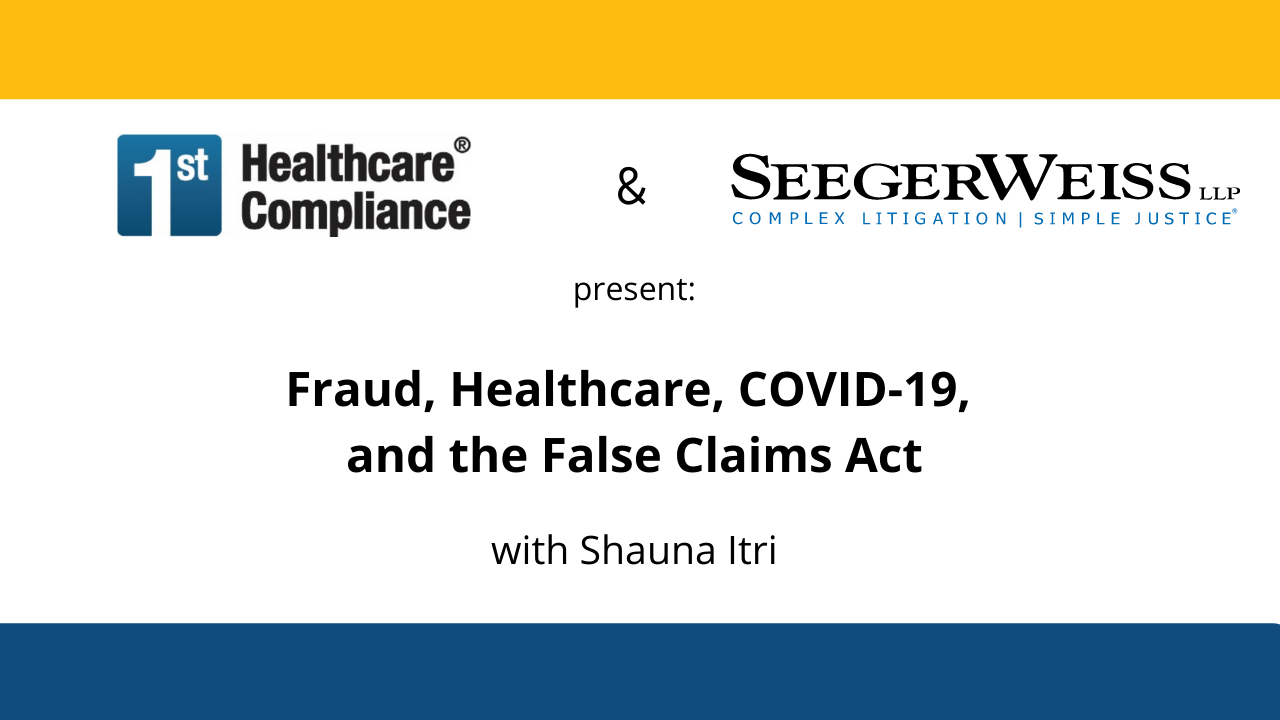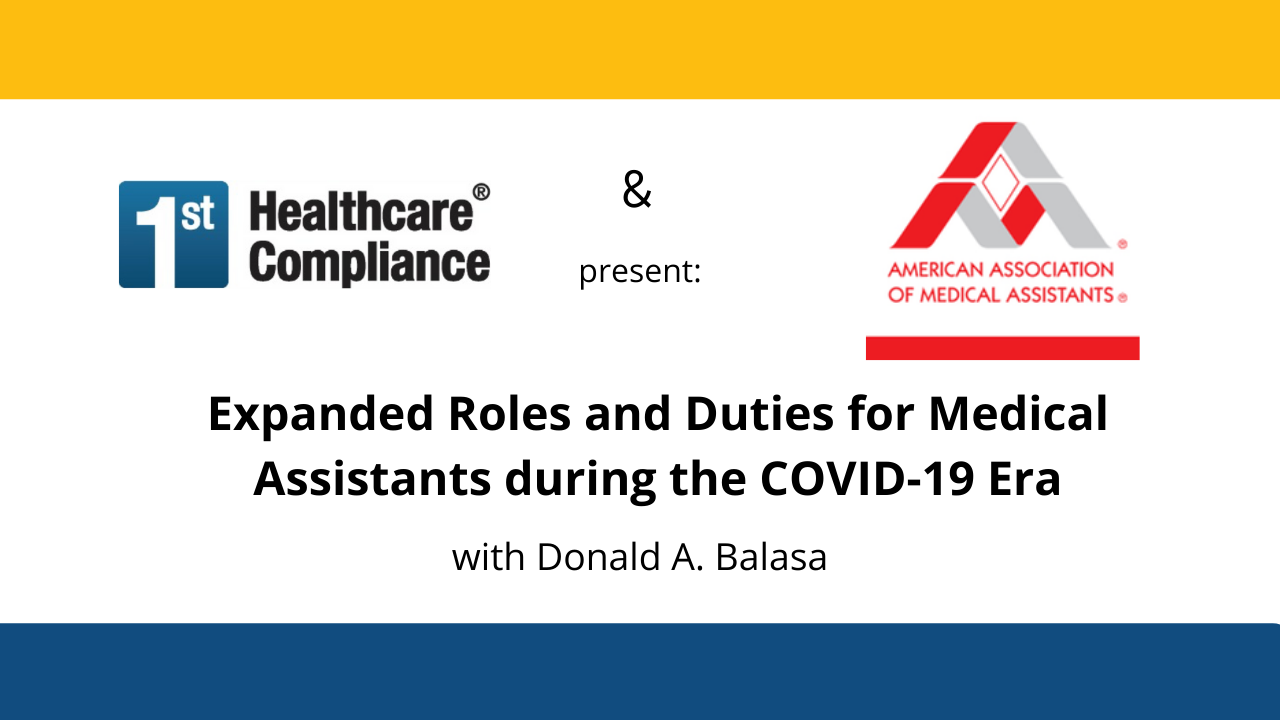
Employment and Labor Law Round-up With 2022 Forecast and Other HOT Topics
Catherine Walters, partner at BYBEL RUTLEDGE LLP, management-side labor and employment attorney representing employers of all sizes, will be presenting this timely webinar. During 2021 as the COVID pandemic raged on and the new Administration faced unprecedented challenges, extensive changes occurred in the employment and labor law landscape, and even more extensive changes are anticipated for 2022. This program will provide a quick update of 2021's most important developments and forecast what employers can expect in 2022. Attend this program to catch up on the Biden Administration's progress on its labor agenda, relevant Supreme Court decisions and how they affect employers, DOL agency activities, issues to worry about in 2022 and other hot topics, including OSHA, vaccination rules/policies, wage and hour issues, remote workplace tips, cannabis, restrictive covenants, to name a few.

Fraud, Healthcare, COVID-19, and the False Claims Act
Shauna Itri, Partner at Seeger Weiss LLP will be presenting for us today. A whistleblower or qui tam action can provide financial rewards to individuals who have information that a company/individual has committed fraud. The primary statutes under which this relief may be sought are the federal and state False Claims Acts (“FCAs”). In addition to the FCAs, there are other statutes which apply to tax fraud, securities fraud, and in California, fraud on private insurance companies. This practical Course will provide an overview of the False Claims Acts, the knowledge and skills to be able to recognize a potential whistleblower case, and understand the unique procedures utilized in filing whistleblower cases/tips. The second half of the Course will go into recent trends in cases brought (or could be brought) under the False Claims Act including cases involving mined data and potential fraud related to COVID-19.

Employment Law and COVID
Catherine Walters, Partner at Bybel Rutledge LLP will lead the presentation Employment Law and COVID-19 at the Healthcare Compliance Symposium 2021 on April 22, 2021.

Expanded Roles and Duties for Medical Assistants during the COVID-19 Era
Donald A. Balasa, JD, MBA, Chief Executive Officer and Legal Counsel of the American Association of Medical Assistants (AAMA) leads this timely and informative webinar. The medical assisting profession has risen to the occasion as the United States and the world have been dealing with the most serious health crisis in the last 100 years. Medical assistants have been asked by public health officials, managers of health systems, and licensed providers to assume expanded roles and perform tasks beyond their normal scope of work. Because of the breadth of their education and training, medical assistants have been able to adapt quickly to these new responsibilities. Medical assistants have been called upon to work in nontraditional settings under the authority and supervision of a dedicated array of clinicians and administrators with whom they had not previously practiced (e.g., pharmacists).The purpose of this webinar is to identity the laws that establish the scope of practice for medical assistants, and to delineate the expanded tasks that medical assistants may be delegated under these laws. The legal principles placing limitations on the scope of work for medical assistants will be explained, and the expanded functions that are not delegable to medical assistants will be set forth.
